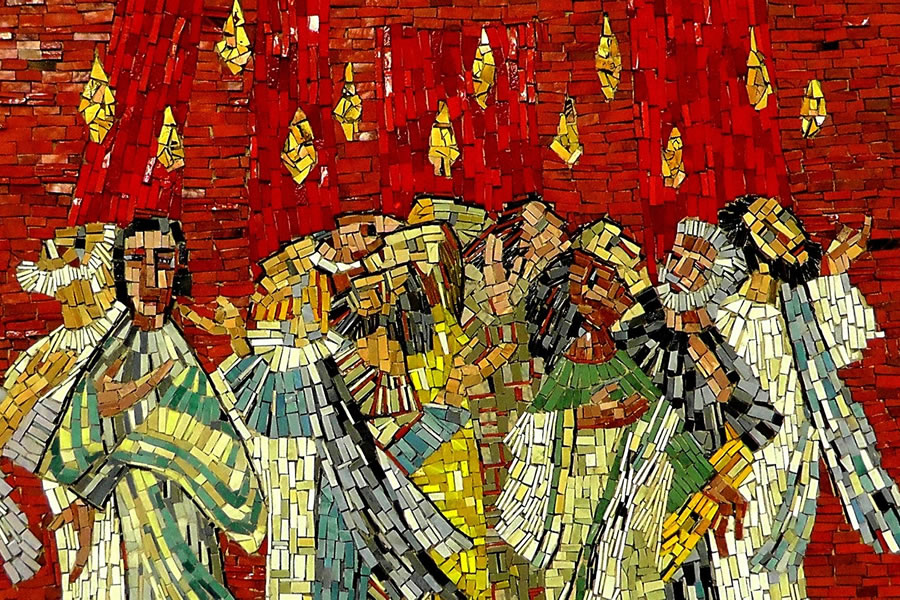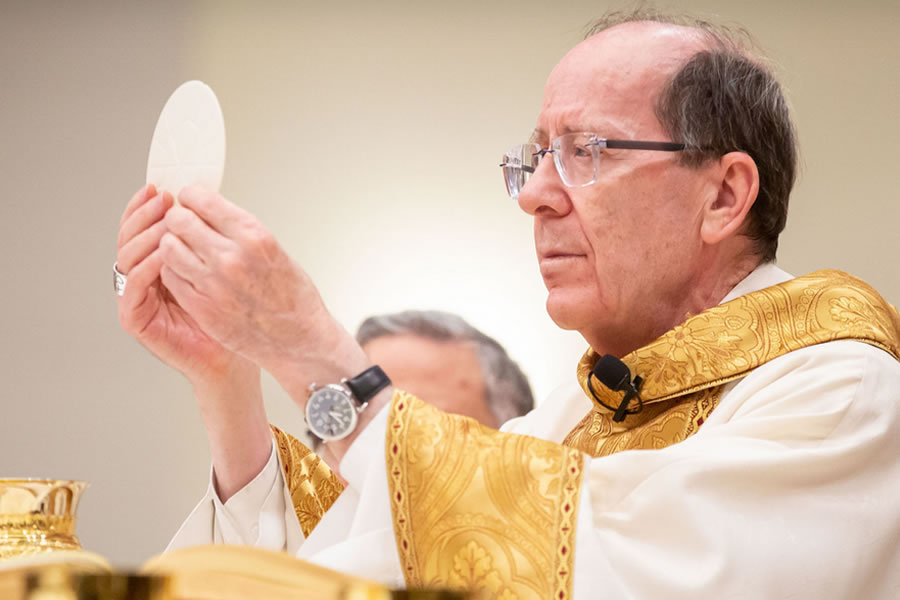Blog & Pastor Letters

Glory to the Father, the Son, and the Holy Spirit
05-30-2021Weekly ReflectionRev. Victor C. YakubuThe teaching of the Church on the Most Holy Trinity is clear. The Trinity is a tripod of three persons in one God. They are not three gods but three persons in one God, undivided in unity and equal in majesty. The history of this teaching goes back to the promulgation of the Council of Nicaea in 325 A. D. when Emperor Constantine called an assembly of bishops and leaders of the Church.
READ MORE
The Church and Constant Renewal by the Holy Spirit
05-23-2021Weekly ReflectionRev. Victor C. YakubuI remember attending Mass in my community as a young man, with Latin as the main language. You can imagine my confusion singing in Latin while having a limited vocabulary of English as my fourth language. With three native languages in my head, I could hardly follow Latin, but the rhythm and rhymes amused me so much that I could easily mumble everything with the congregation. With some Latin, I felt I belonged to the Church just like the missionaries who promoted it. One Sunday, the Irish priest surprised everyone. He announced at Mass that the choir could sing in their native language and beat the drums. He began to preach to the people in their native language. The reforms he was bringing impressed me. The congregation was more impressed so much so that subsequent Sundays witnessed large crowds in the pews. The Catholics invited others because the renewal considered by the Irish priest recognized their language as part of the language of the Universal Church.
READ MORE
Conclusion— Apostolic Exhortation / Veneremur Cernui - Down in Adoration Falling
05-16-2021Weekly ReflectionBishop Thomas J. Olmsted104. If God were to offer to do an amazing work to foster faith in the Church and in the world today, what would we ask? We may like to ask for signs and wonders, lightnings and fire, like the pillars of cloud and fire as in the Exodus with Moses. Or we may ask for Eucharistic miracles like bleeding or levitating hosts to deepen our faith in the Eucharist. Perhaps we would simply ask for cultural circumstances to be more favorable to religion.
105. None of this would do any good with respect to faith. Saint John Henry Newman in a sermon entitled “Miracles No Remedy for Unbelief” recalls the Lord’s words that the Israelites “refused to believe in me, despite all the signs I have performed among them” (Numbers 14:11); and that chief priests and pharisees called a council to put Christ to death because he “is performing many signs” (Jn 11:47). Newman’s sobering conclusion is that “nothing is gained by miracles, nothing comes of miracles, as regards our religious views, principles, and habits”. He knows that too often we find our ourselves having gone “year after year with the vain dream of turning to God some future day”. What should we ask from God, then, to strengthen faith?
READ MORE
Christianity and the Jesus Open-Door Policy
05-09-2021Weekly ReflectionRev. Victor C. YakubuHiking up to the zenith of Mont Sinai is a daunting task. I began the climb from St. Catherine’s Monastery at the foot of the mountain with other pilgrims from different parts of the world. It was cold and chilly. The monks told us there has not been snow for a long time. Anyway, the snow began to melt, and we were told it was safe to start the climb. Meanwhile, they gave us hot tea to warm us up and we were dressed up in all kinds of protective gear. I wore mine carefully and covered my head allowing only my eyes the honor of directing my sight.
READ MORE
Christians and the Image of Jesus as the True Vine
05-02-2021Weekly ReflectionRev. Victor C. YakubuC.S. Lewis' Mere Christianity is a must read for all Christians. Lewis was an Oxford University professor who became an atheist and later converted again to Christianity. After his reconversion he decided to write the little treatise on Christianity based on his radio interviews on the common beliefs that Christians share without going into the complications of theology, dogma, or doctrine. Lewis intended with his book, to present the Christian faith in simple forms without offending theologians and leaders of the Christian faith. He wanted those who professed atheism as a way of life, to reconsider conversion just as he did.
READ MORE